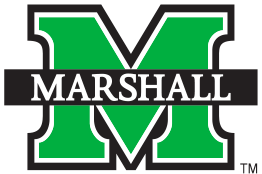Teaching Pages
Welcome Students!
Here on this page you will find lots of useful information about how to succeed in physics courses that I teach. As a student in my class, all your actual course materials, such as lecture notes, written homework questions, all homework solutions, quiz solutions, and exam solutions are protected on Blackboard (use your MUNet login and password to sign in). Additionally, to the right there exist many links to important documents such as where to get additional help outside of class, exam equation sheets, previous course syllabi, previous grade distributions, degree programs in physics here @ MU, stats on how much your fellow students use Blackboard, and FERPA forms, which are needed for Letters Of Recommendation (LORs). The standing rule for LORs is, if you earn an ‘A’ letter grade in any class that I am or have been your professor for, guaranteed, I will write you a letter of recommendation for graduate school, scholarships, internships, promotion, or that dream job. As an ‘A’ student of mine, this is an offer that is always on the table for you, even if you have graduated. If you just missed the ‘A’ mark, read the FERPA form and come and see me, we can talk.
Road Map to Success in Physics
My goal as an educator is to provide you a road map to become a successful student and learn Physics. First and foremost, physics is not easy. Why is physics not easy? As previous students have explained, physics is a subject where memorization techniques do not work; this is why they often initially perceive physics as a difficult subject. It also takes a significant amount of practice. No one would expect you to be an olympic grade swimmer the first time you jump in a pool, you have to do lots of training and exercises. Your training and exercises in physics classes is your homework assignments and quizzes, these prepare you for the exams. I want all my students to succeed and I am here to help you. The main ingredients for success are motivation, determination, and most importantly, knowing when to take the initiative to come and get help from me or your fellow peers if and when you need it. Success in a physics class means you understand the individual concepts and can apply those concepts to many other different problems and situations. Sucess means you can solve problems for numerical answers or finding the algebriac expressions with the provided variables. Lectures will parallel the Physics program’s required textbook for your class, so you are encouraged to read it (keep up with the tentative course schedule provided on your syllabus). For any class, not just physics, check your Blackboard account for ‘Notifications’ as this the fastest way to communicate information to all students in your class and will be the preferred method for me to distribute information for the class. Feel free to email me in response to those ‘Notifications’. As a college student, you should check your @marshall.edu email twice a day at a minimum. Many exciting and important oppurtunities are lost by students who simply do not check and respond to emails.
Depending upon your physics course, the material covered may be geared toward students pursuing a degree in secondary education, physical science, engineering, or preparing you for graduate work in medical or pharmacy school (just to name a few). For the engineers, your course is aimed at showing you the basics of physical phenomena that you will later study in greater detail in your engineering courses. Your PHY 211 course is just the tip of the iceberg. For example, studying systems that don’t move (Statics), moving objects (Dynamics), and fluids are each limited to several chapters in this class; depending on your emphasis in engineering, you will spend entire semester-long courses devoted to studying these individual topics in greater detail during your career. For students following other routes, your course is likely designed to prepare you for having the proper foundations for the GRE Physics Subject Test, the MCAT, the OAT, and/or the Praxis Physics II Exam for those going into a teaching career (just to name a few, all of which have physics questions on them). In summary, the objective of your physics course is designed to provide you with a basic understanding of the key aspects of science that form some of the fundamental foundations of the physical world that surrounds us every day.
In the process of learning the fundamentals of physics in your course as described above, the overarching goal, independent of your major, is to help hone your critical thinking, analysis, problem solving, and quantitative reasoning skills. In order to accomplish this goal successfully, you will be given practice via weekly homework problem sets that will either be online, or written, or a mix of both. The homework is time consuming and challenging, but understanding the concepts and approaches to problem solving from homework is the key to passing the quizzes and exams (quizzes and exams count for the majority percent of your grade). If you do any of the homework problems incorrectly, solutions will be posted on Blackboard so that you have the opportunity to learn from your mistakes. Homework counts for the least amount of points as that is your time to practice. If you do not understand the concepts and/or math in the homework solutions, continually ask questions to me or your peers until you understand the them, this is how to pass quizzes, exams, and your particular course. I am nearly always available for help if you need it; come see me in my office or send me an email whenever you have questions. I have an open-door policy and Herd Hours for all my classes, there is no reason not to seek help when you need it.
Comments From Students
Teaching Image Gallery
Useful Information
Course Documents
Organized and/or Participated Recruiting Events

